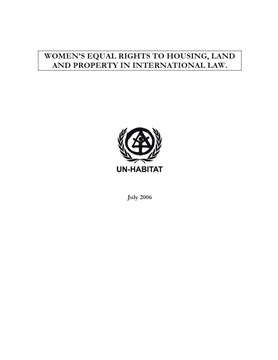Subdividing the commons: The politics of property rights transformation in Kenya's Maasailand
This paper discusses the internal processes and decisions that characterized the transition from collectively held group ranches to individualized property systems among the Maasai pastoralists of Kajiado district in Kenya. It addresses the question of why group ranch members would demand individualized property systems, but then turn against the outcome. In addressing this puzzle the paper discusses the process of land allocation and distribution during group ranch subdivision.







